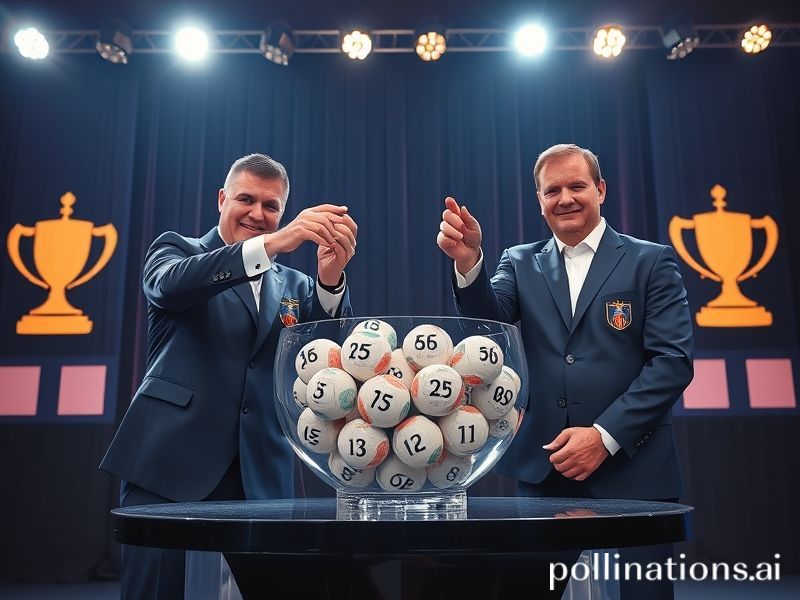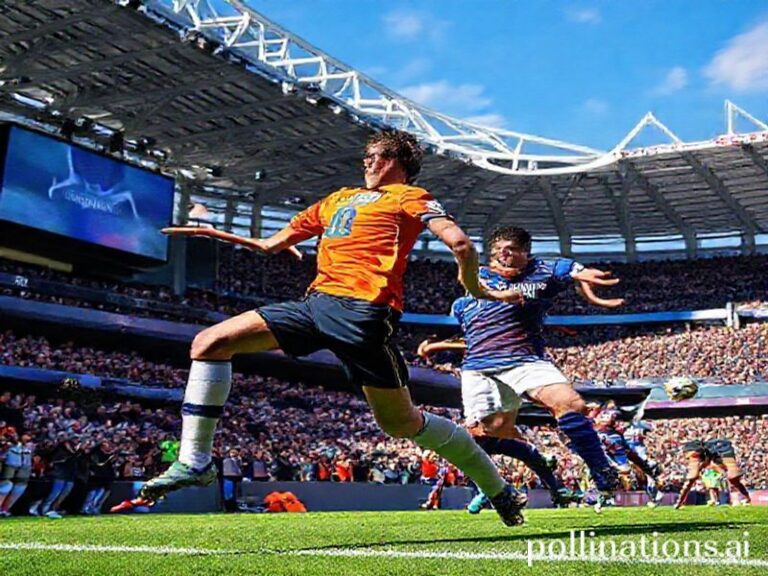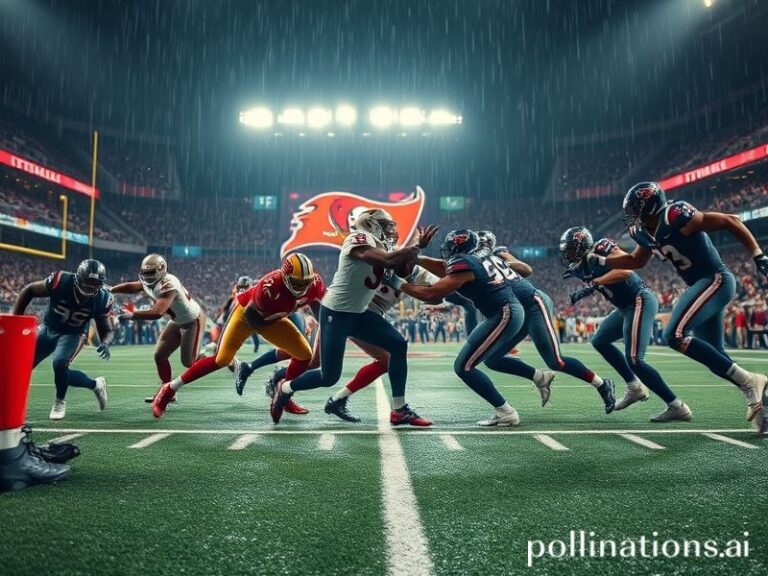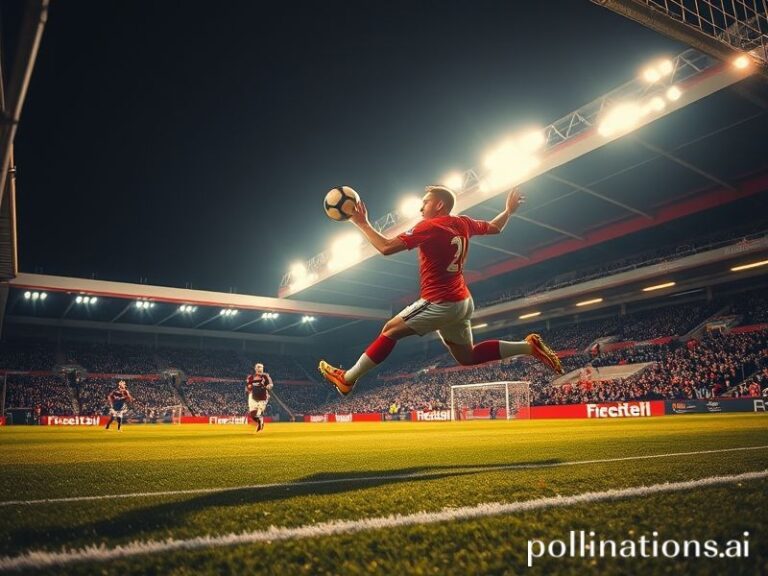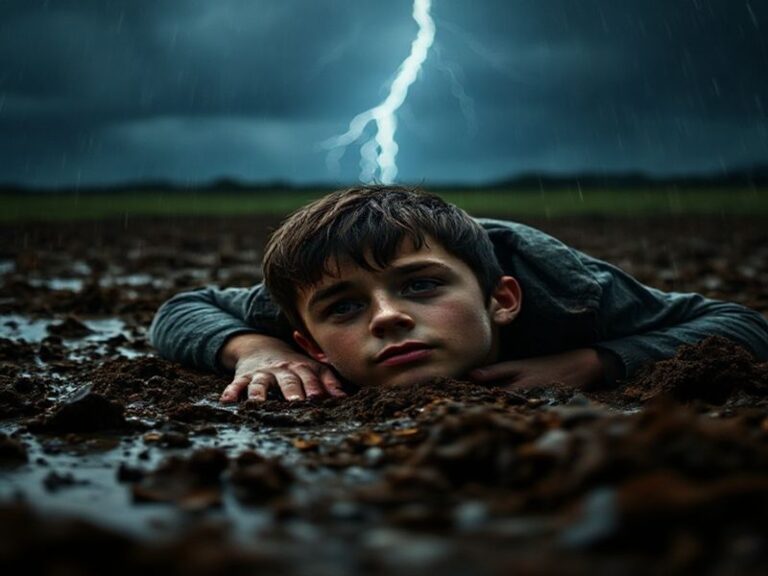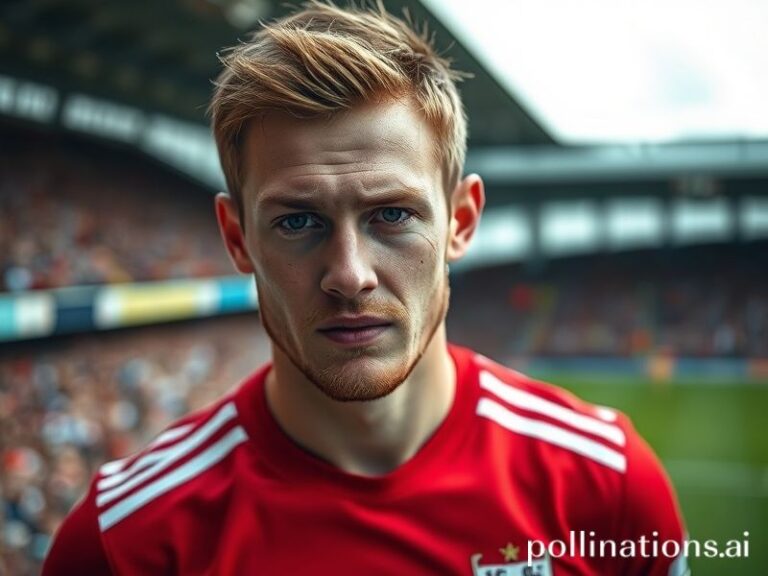Ping-Pong Diplomacy: How a Plastic Ball Became the Axis of Global Power
Balls, Bombs, and Bureaucracy: The Premier Sports Cup Draw as Global Theatre
By Correspondent at Large, Dave’s Locker
Somewhere between the tenth replay of an animated league logo and the thirty-second close-up of a retired striker pretending to read a slip of paper, the planet’s attention span was held hostage for exactly seven minutes. That was the duration of this year’s Premier Sports Cup Draw—an annual ritual in which multi-millionaires in suits fondle numbered ping-pong balls like anxious toddlers, while the rest of us pretend the outcome could decide the fate of civilisation. Spoiler: it won’t, but the ratings say we’ll watch anyway.
Held in a glass atrium in Dubai—because nothing says grassroots football like 42-degree heat and imported Italian marble—the draw was billed as a “global celebration of the beautiful game.” Translation: a pretext to sell second-tier teams to new markets and remind European fans that their cable bill subsidises Qatari pension funds. Representatives from every continent sat elbow-to-elbow, a tableau of forced smiles that would make the UN Security Council blush. The African delegate wore a dashiki patterned with cryptocurrency logos. The Asian delegate livestreamed the event to 30 million followers on an app most Westerners can’t pronounce. Meanwhile, the lone American looked baffled, having expected Tom Brady to parachute in with the trophy.
The draw itself is governed by rules so Byzantine they could be an EU fisheries directive. Pot 1 teams must be kept apart, Pot 2 teams can meet Pot 4 teams only if the moon is waxing, and any club whose owner faces US sanctions is quietly slipped into a group with a side nobody’s heard of since the VHS era. This year’s conspiracy du jour: the algorithm supposedly “glitched,” pairing two Saudi-owned clubs in the same group—an accident that will conveniently boost Riyadh’s TV ratings by 400%. FIFA’s ethics committee announced an immediate investigation, then adjourned for lobster bisque.
Of course, the real drama unfolded off-camera. In Kyiv, the local supporters’ club held a silent vigil because their stadium is currently doubling as a drone shelter. In Buenos Aires, fans toasted the draw with Fernet while inflation ticked up another three points before half-time. And in Manchester, a blockchain startup promised to fractionalise ownership of the actual plastic balls, selling micro-shares to fans who can now brag they own 0.0004% of the number that doomed their archrivals to face PSG. The future is fractional, apparently, and mortgaged at 19% APR.
Geopolitically, the draw is less a sporting event than a soft-power ledger. Beijing leveraged its streaming rights to insert a 30-second propaganda reel about pandas and high-speed rail. Russia, still banned, responded by hacking the live ticker so every scoreboard briefly flashed “Crimea River.” Washington stayed above the fray—until it was revealed the Pentagon’s newest AI war-game simulator was trained on last year’s group-stage data, on the theory that predicting football upsets is 93% correlated with forecasting asymmetric insurgencies. Somewhere in Silicon Valley, a hoodie-clad engineer just got another promotion.
Social scientists call this phenomenon “sportswashing,” a term that sounds like a detergent but smells more like sulphur. Yet the public keeps buying the same jersey in a new shade of teal. Why? Perhaps because the alternative is acknowledging that the world is on fire—literally, in the case of the wildfires that postponed the Australian qualifier. Or maybe because, deep down, we crave the illusion of meritocracy: the belief that a tiny club from the Faroe Islands can shock Real Madrid if only the right ball drops. It never does, but hope is the most addictive placebo ever marketed.
As the confetti cannons misfired and the host awkwardly mispronounced “Dortmund” for the third time, the ceremony ended with a fireworks display that cost more than the annual budget of three participating nations combined. Viewers were urged to “vote with their passion” by downloading an app that harvests facial recognition data for unspecified partners. The final shot lingered on a child holding a homemade sign: “Football Is Life.” Somewhere in the production truck, a producer whispered, “Cue the slow-motion eagle,” and the feed cut to commercial.
And so the caravan rolls on—an unholy alliance of sport, finance, and geopolitics masquerading as innocent fun. Somewhere, a goat herder in Eritrea is wearing a knockoff Chelsea kit, unaware that his purchase just financed another superyacht. The rest of us will tune in again next year, pretending the balls are random and the outcomes matter. They don’t, but neither does the stock market, and we still check that every morning. At least the cup draw gives us fireworks.

